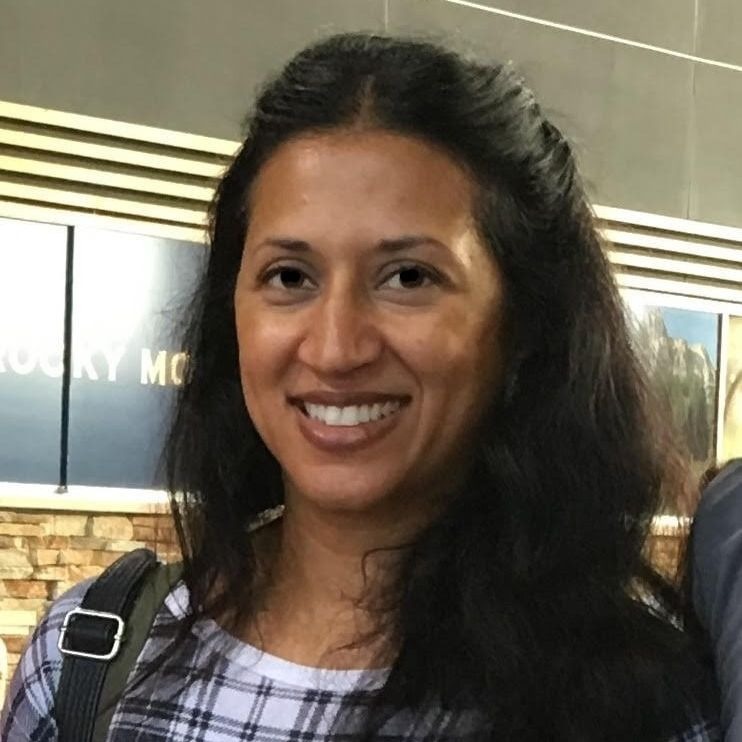We spoke with Deepika Kandula, Director, Malaria Program Support, Clinton Health Access Initiative, and one of the members of our 2020 Leadership Journey. Read our Q&A to learn about how she is working to integrate a gender lens into malaria prevention, how COVID-19 impacted her work, and who inspires her.
What is your Leadership Journey Project and why did you choose it?
I’m currently the Director of Malaria Program Support at the Clinton Health Access Initiative (CHAI) where we are partnering with 15 countries across Africa, Southeast Asia, Central America and the Caribbean to strengthen national malaria responses in a sustainable way. My leadership project aims to actively consider and integrate gender into CHAI’s malaria strategy and programming.
Gender is such an important social construct for how people experience the world, and gender inequality and oppression are obstacles to health and wellbeing around the world. Yet to date, CHAI has not reflected on how gender may be associated with malaria or how our programming may accommodate or exploit gender inequalities (e.g. supporting unpaid female dominated CHW programs) in unintended ways. I want to examine how gender intersects malaria both from the patient and health workforce perspectives to understand barriers and opportunities among the communities we work with, apply this knowledge with stakeholder partners, and accelerate the impact of our collective work.
What has surprised you about the WomenLift Health Leadership Journey experience?
The strength and confidence my WomenLift cohort has given me in unspoken ways. I haven’t met anyone in person yet, but I’ve been amazed by the encouragement, willingness to share, and thought-provoking discussions in this group. We have developed a camaraderie that may have been intensified through the pandemic and by navigating this time as women leaders and mothers. I feel grateful knowing that I have this extraordinary group of women peers in global health to lean on and cheer on.
How has COVID shifted the focus of your work?
CHAI’s core model of working alongside and in partnership with governments aims to strengthen the capacity of malaria programs in a sustainable way. CHAI’s goal is to contribute to building and augmenting country-owned systems and processes that eventually can be managed and sustained locally, with less reliance on continued financial support by international organizations and donors. But the Covid-19 pandemic and The Black Lives Matter Movement have made the structural problems in how we work and the deep-rooted power imbalances even more clear. We need to acknowledge and discuss the underpinnings of the global health architecture – Western, colonial-rooted values – and accept that these are no longer fit for purpose to achieve collective, mutually beneficial, and sustainable health outcomes more openly. Limited transparency and accountability for international organizations and donors, narrow perspectives on how we value knowledge and define truth, who should set health priorities and define resource needs in developing countries, misaligned incentives, unequal sharing of power, and the lack of centering community, are examples of why the current global health framework undermines progress and reinforces the fragility of gains achieved.
I am leading an initiative at CHAI to identify concrete ways to conduct work that actively rejects outdated principles and shifts the balance of power to Global South institutions and leaders. Doing so will increase the resilience of the programs we support in the face of pandemics, climate change, and social strife, and contribute to sustainable, equitable, and mutually beneficial outcomes of our work.
How can we ensure that women are at the center of not only COVID recovery plans but also long-term strategies for the improvement of health?
We need to continue to elevate and demand for more women in leadership roles across the global health sector. Collectively, we can make these changes happen sooner rather than later and build on the momentum from the recent social justice movements that have resonated globally.
Who inspires you?
I recently finished reading Dear Ijeawele, or A Feminist Manifesto in Fifteen Suggestions by Chimamanda Ngozi Adichie. I love how she conveys stories around identity, human struggle, and self-realization in a captivating and candid way that encourage global audiences to see things in a way they may have never thought about before. She has a commanding and graceful presence and is simply a brilliant, super cool human!


